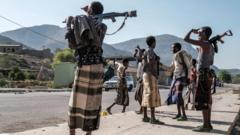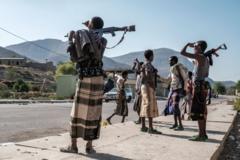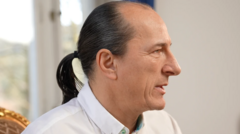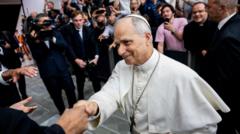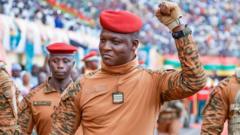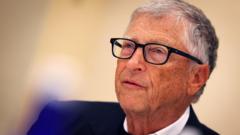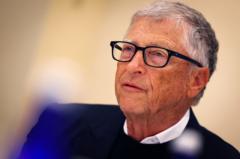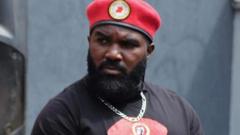In a significant development for Gabon, the ousted Ali Bongo and his family have been granted provisional release and flown to Angola amidst ongoing corruption charges.
Ali Bongo and Family Released from Detention, Now in Angola
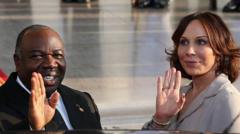
Ali Bongo and Family Released from Detention, Now in Angola
Former Gabonese president Ali Bongo and his family have been freed from detention and relocated to Angola following a coup in 2023.
In a recent announcement by the Angolan presidency, former Gabonese President Ali Bongo and his family have departed Gabon and arrived in Luanda, Angola. This marks a pivotal moment following their detention connected to a coup that deposed Bongo in 2023. Alongside him, Bongo’s wife, Sylvia, and their son, Noureddin, who were previously facing corruption charges, have also been released from custody. Their lawyer contends that the detention was arbitrary, although the family has not formally responded to the allegations.
Their release was influenced by a visit from Angolan President João Lourenço, who engaged in discussions with Brice Oligui Nguema, the military leader who ousted Bongo and subsequently won a presidential election. Notably, Gabonese prosecutor Eddy Minang categorized the family's release as provisional, citing health concerns, while emphasizing that legal actions against Sylvia and Noureddin are set to persist.
Upon arriving in Angola, photographs released by its presidency depict a warm welcome for Bongo, alongside his wife. Bongo, whose father governed Gabon for over 40 years, led the nation for 14 years before the recent upheaval. While he contends that his house arrest was more restrictive than suggested by Gabonese authorities, both his wife and son faced imprisonment under serious allegations of embezzlement and fraud.
The Bongo family has garnered criticism over alleged wealth accumulation at the expense of the Gabonese populace, with a significant portion of the country living below the poverty line despite its robust oil reserves. The African Union's recent decision to reinstate Gabon into its membership signaling enhanced diplomatic relationships in the region has been seen as a positive development, with hopes pinned on Gabon serving as a model for democratic restoration across Africa.
In contrast to Gabon’s evolving political landscape, military leaders in West African nations, including Mali, Niger, and Burkina Faso, continue to resist mounting international pressure to restore civilian governance.
Their release was influenced by a visit from Angolan President João Lourenço, who engaged in discussions with Brice Oligui Nguema, the military leader who ousted Bongo and subsequently won a presidential election. Notably, Gabonese prosecutor Eddy Minang categorized the family's release as provisional, citing health concerns, while emphasizing that legal actions against Sylvia and Noureddin are set to persist.
Upon arriving in Angola, photographs released by its presidency depict a warm welcome for Bongo, alongside his wife. Bongo, whose father governed Gabon for over 40 years, led the nation for 14 years before the recent upheaval. While he contends that his house arrest was more restrictive than suggested by Gabonese authorities, both his wife and son faced imprisonment under serious allegations of embezzlement and fraud.
The Bongo family has garnered criticism over alleged wealth accumulation at the expense of the Gabonese populace, with a significant portion of the country living below the poverty line despite its robust oil reserves. The African Union's recent decision to reinstate Gabon into its membership signaling enhanced diplomatic relationships in the region has been seen as a positive development, with hopes pinned on Gabon serving as a model for democratic restoration across Africa.
In contrast to Gabon’s evolving political landscape, military leaders in West African nations, including Mali, Niger, and Burkina Faso, continue to resist mounting international pressure to restore civilian governance.


